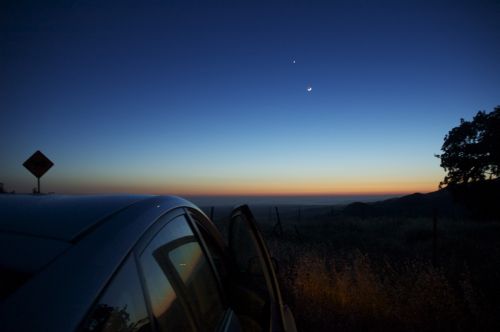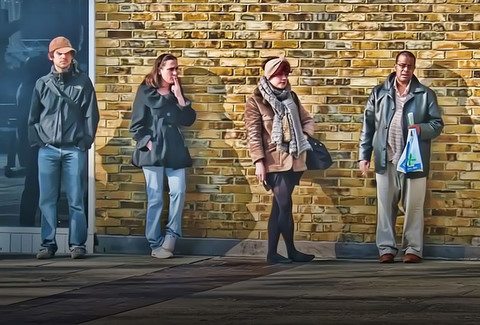
The internet allows us to share a brain, sort of. You have an idea, or an understanding, and now it can be anyone’s, with no need to get a publisher to agree that it’s worth sharing. If that idea changes the way someone lives, that change can change the way someone else lives, and that’s all culture is. Twenty years ago this medium wasn’t a part of our lives, and now we’re influencing each other at an astonishing rate. This is evolution.
Quite often I’ll find something out there that’s worth talking about and that I know many of you would appreciate. But I don’t really want to dedicate a post to discussing someone else’s content. I just want to point it out and send you on your way, and if you want to come back to talk about it in the comments, I’ll be here and so will a lot of other readers.
Ideas, if they’re valued and worked into our lives, can make the rounds and leave the world changed. So I want to take some of them and give them a good spin, and see what comes back. I want to know what you think about these ideas, and I want you to pass them around.
The Revolver will be a regular installment, two to four Saturdays a month. In it I’ll share just a few very worthwhile links that hint at where humanity and its members might be headed.
***
The Khan Academy
A charismatic investment banker from New Orleans is reinventing education using short, concise videos. Sal Khan understands where traditional education is failing and has taken it upon himself to find a better way.
He articulates the absurdity of the current system:
…I give you a lecture [on cycling] ahead of time, and I give you a bicycle for two weeks, and then I come back after two weeks, and I say “Well, you’re having trouble taking left turns and you can’t quite stop. You’re an 80% bicyclist.” So I put a ‘C’ stamp on your forehead, and then I say, ‘Here’s a unicycle.'”
The link above is to his TED talk explaining the Khan Academy, which has become a vast repository of videos and exercises that can be learned one by one at any pace. A student who doesn’t get something the first time around can review it easily before moving on to a concept that builds on it.
The most impressive aspect of these videos is that they’re fun. They’re simple and presented in plain, human language. Don’t understand the cause of the housing crisis? The French Revolution? How compound interest works? Take twenty minutes and get a much better idea.
The Primacy of Consciousness
I discovered this while writing last Monday’s conscious universe post, and boy does Peter Russell ever say it better than I do. If there was anything about that post that made you think about life a bit differently, this will turn you inside-out. I’ve talked about the idea that science and religion are not necessarily at odds, unless you misunderstand at least one of them. Russell presents a thorough, sensible case for this reconciliation, yet he stays funny and likable.
Untitled
I don’t think there’s a simpler way of articulating the philosophy of unconditional acceptance. The Stoics had it down over two thousand years ago, but even they never put it so elegantly.
How to be socially graceful
A long time ago a reader linked to this in a comment. It’s just a casual post on Reddit that was popular for a day or two, but I think it’s hugely useful for anyone who sees themselves as socially awkward to some degree, which seems to be most people.
The author didn’t say so, but its usefulness extends way beyond socialization. The key to grace, as he says it, is to — beforehand — agree that you will not let your body or mouth react to anything that happens until you’ve taken a second to consciously assess it, knowing that that will give you the best possible chance to respond intelligently. This is the holy grail of living with grace, as far as I’m concerned, and its social application is just one small part of the picture.
Robert Newman’s The History of Oil
A pretty funny stand-up routine with a pretty dire message. Whether or not you’re a believer in what some call “peak oil”, there is a crucial takeaway point here: wars have always been started and fought for economic reasons, seldom for freedom or justice or any of the cosmeticked reasons given to drum up support for them. World War One began with an invasion of Iraq and had little to do with its official scapegoat, the assassination of indie rock band Franz Ferdinand.
***
I want to hear what you think about these ideas. Please let us know below. And don’t forget to share the ones you like.
Photo by David Cain









 I'm David, and Raptitude is a blog about getting better at being human -- things we can do to improve our lives today.
I'm David, and Raptitude is a blog about getting better at being human -- things we can do to improve our lives today.
I’m grateful you had this epiphany and shared it. As someone else with ADHD I suddenly saw a new thought paradigm for me as I read this. I think recognition of this split is really going to genuinely help me and give me permission to be more strict with myself....